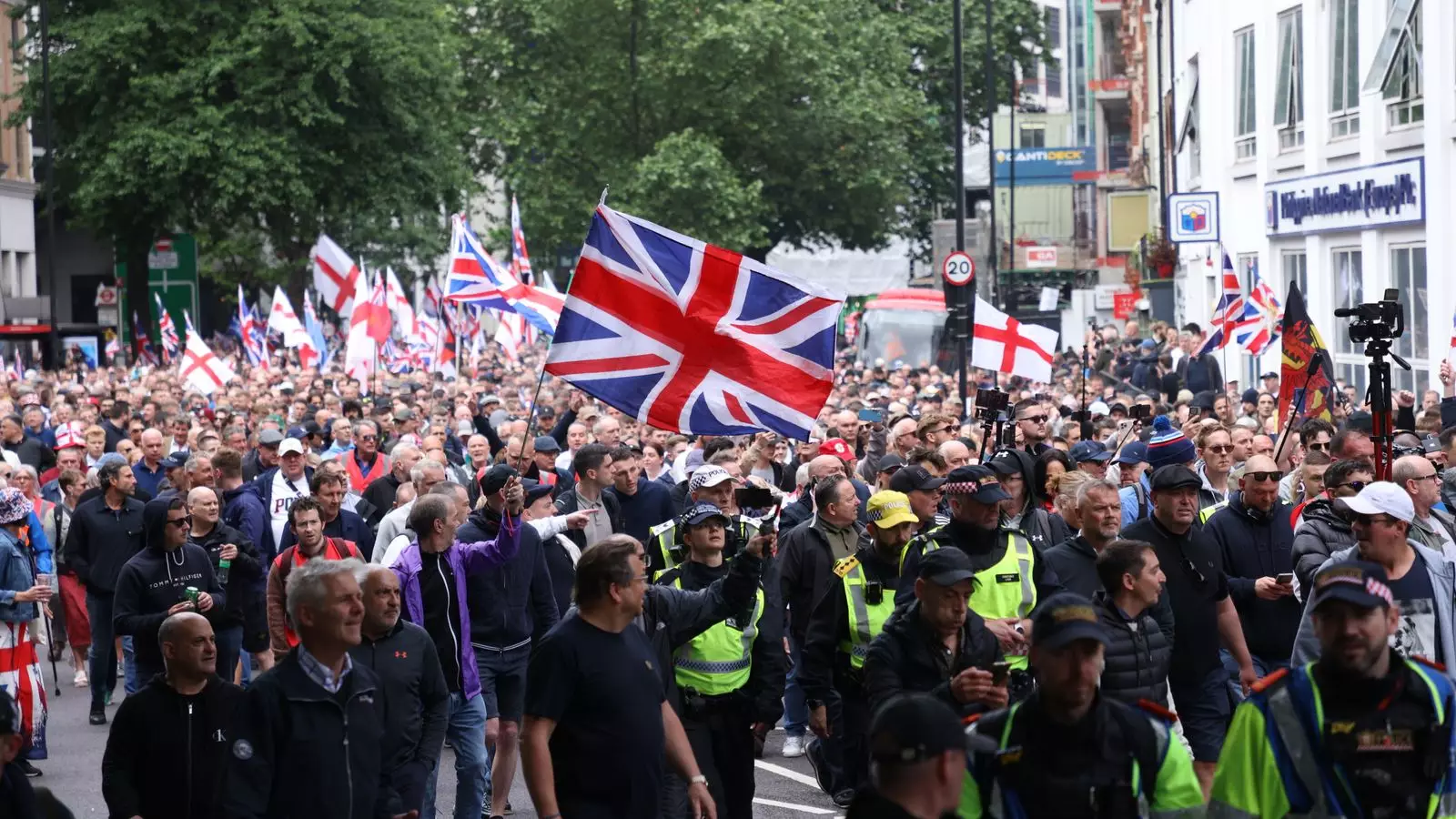London has seen a significant increase in police presence with more than 2,000 officers on duty for the Champions League final at Wembley. This heightened security measure is not only focused on monitoring fan events but also on addressing potential protests and demonstrations that may arise in the city.
The Met Police officers have been actively involved in managing various protests across London, including a demonstration led by far-right activist Tommy Robinson at Parliament Square. This protest was met with a counter-protest by Stand Up To Racism, showcasing the diverse opinions and stances present in the city. The conflicting ideologies being expressed through these protests have the potential to lead to tensions and conflicts, which the police are tasked with managing.
Scotland Yard has identified individuals at the protests who have a history of involvement in violent disorder, with some having football banning orders and connections to hooligan groups. This raises concerns about the potential for violence and disruption during the Champions League final. Additionally, the presence of individuals linked to anti-lockdown protests and intoxication further complicates the security situation.
The Met Police have already made arrests related to drunk and disorderly conduct, assaults on emergency workers, and incidents of racial abuse. These arrests highlight the challenges faced by law enforcement in maintaining order amidst heightened emotions and differing opinions. The incidents at Parliament Square and Waterloo demonstrate the potential for disruptions that may escalate if not addressed promptly.
T/Commander Louise Puddefoot, leading the policing operation for the weekend, emphasized the importance of ensuring the safety and enjoyment of fans visiting London for the Champions League final. The visible police presence around Wembley, fan zones, and other events aims to create a secure environment for all attendees. However, the ongoing protests and potential for disorder pose a significant challenge to law enforcement efforts.
The increased police presence in London for the Champions League final reflects the need for comprehensive security measures to address potential threats and disruptions. The ongoing protests and identified individuals with a history of violence create a volatile environment that requires careful monitoring and strategic intervention. The arrests made so far underscore the importance of proactive policing in maintaining public order and ensuring the safety of all individuals involved. As the Champions League final reaches its conclusion, the effectiveness of the policing operation will be tested in managing any potential incidents and upholding the peace in the city of London.


Leave a Reply